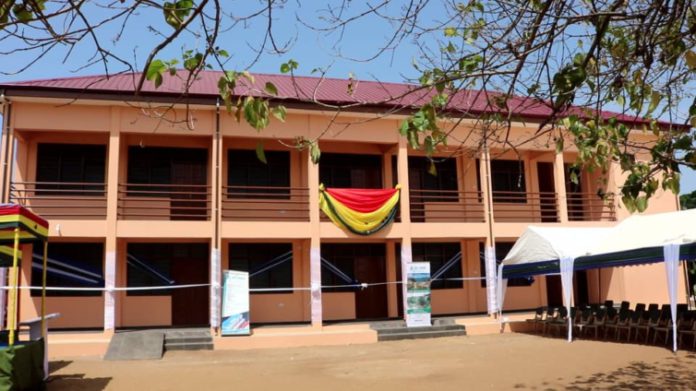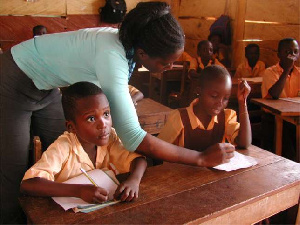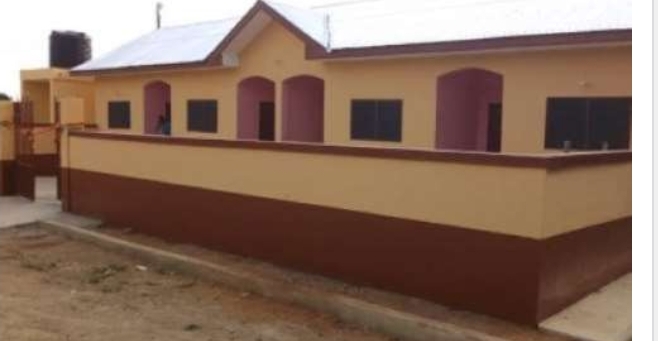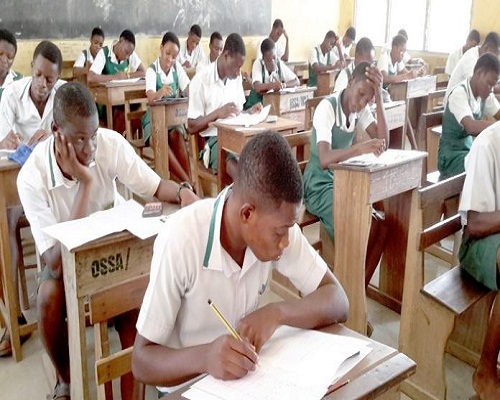‘We are told to have sex to ease menstrual pain’ – SHS Girl discloses at ARYN Seminar

It was both a revealing session and a moment of advocacy when the Ashanti Regional Youth Network (ARYN) sought to find out from Senior High School students the factors fueling the high rates of teenage pregnancy in the Ashanti Region.
While some students pointed to myths of easing their menstrual cramps through having sex and having sex to prevent future fibroids, others disclosed that colleagues who refrained from sexual conduct were deemed dull and antiquated.
“Those of us with painful menstrual cycles, they say if we go have sex before your menses starts, it will ease your pain,” a student intimated.
“They tell us it’s fun. They say if you don’t take part in it, you can get fibroid. They will also call you ‘john’ if you don’t join in,” another student told Ultimate News’ Ivan Heathcote – Fumador.
The outreach sessions of the Ashanti Region Youth Network to Senior High Schools form part of a rather daunting task to reduce the enormous Teenage pregnancy burden in the Ashanti Region.
Out of the 555,575 cases of teens who got pregnant in Ghana between 2016 and 2020, a whopping 89,856 were in the Ashanti Region – a number which will need more than twice the size of the Baba Yara Sports stadium to contain.
While the Ashanti Region has topped in teenage pregnancy statistics for three consecutive years, it is estimated that each year, up to 30% of school girls aged between 14 and 19 drop out of school because they got pregnant.
The prevalence gets worse in poor communities where girls trade the act for a pittance to buy personal effects.
Through the ARYN campaigns done in partnership with the Ghana Education Service (GES), the students are taken through seminars on Sexual Reproductive Health and the power of making healthy choices to prevent unwanted pregnancies and sexually transmitted infections.
A facilitator and Chief Education Officer with Maristopes International, Savior Mensah told Ultimate News, that the huge numbers of unwanted pregnancies and lifelong sexual complications could be curbed if young girls were armed with the right information.
“We taught them abstinence and other natural methods that they can adopt to protect themselves. With the information, they now know the dangers that they may lose their fertility, lose their uterus, or even their lives if they choose to indulge in it. For those who still want to go ahead which they are doing anyway, they will do things the right way to protect themselves,” he noted.
The participants were taken through the menstrual cycle, pregnancy complications for immature bodies, and a host of sexually transmitted diseases.
They were allowed a well-patronized questions and answer session as well as focus group discussions on factors fueling the craze for sex among the youth.
President of the Ashanti Youth Network Linda Fremah was positive the girls are better responsive to advocacy on sexual reproductive health when it is coming from youth.
She observed, “We leave these advocacies to teachers but the influence is not really felt. Young people like some of us in the Network, stand the chance of influencing our younger peers with some of these activities,”
CLICK HERE TO DOWNLOAD PRESS RADIO MOBILE APP

Sexual Reproductive Health and Rights Programs spearhead, Florence Agyemang Mensah outlined that the Network which is an amalgamation of recognized youth groups in the region is expected to hit several more Senior High Schools in a bid to rid the Ashanti Region of the tag of having topped teenage pregnancy statistics for the past three consecutive years.
Source: kasapafmonline.com






